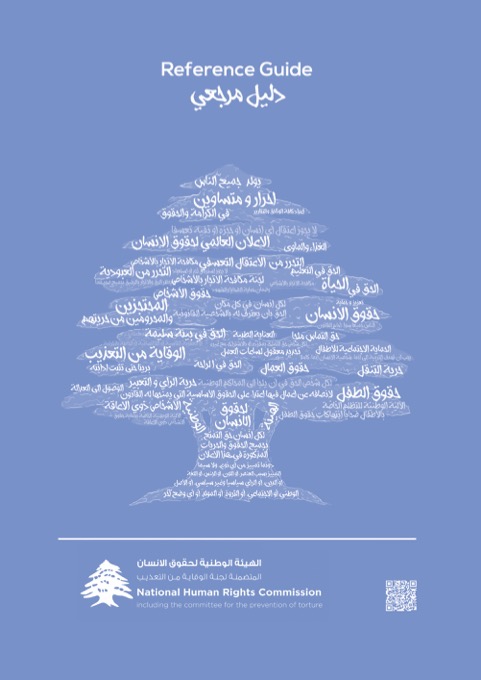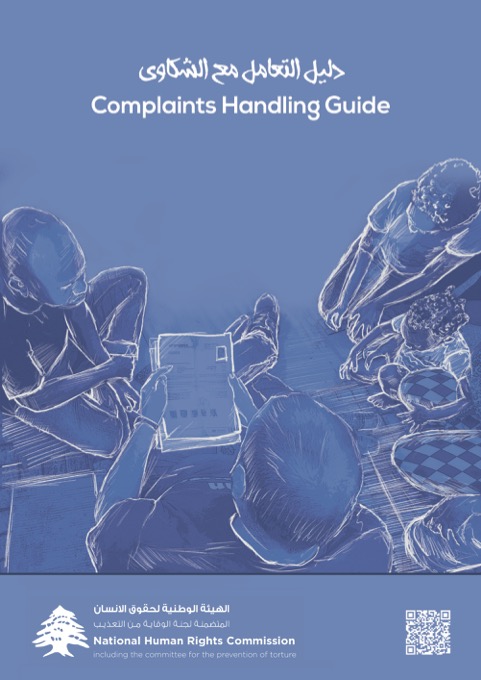هذه المقالة متاحة أيضًا بـ: العربية (Arabic)
The National Commission for Human Rights, including the Committee for the Prevention of Torture (NHRC-CPT), welcomes the decision of the Sentence Enforcement Court in France to release Lebanese citizen Georges Ibrahim Abdallah starting December 6, conditional upon his departure from French territory and agreement not to return.
The Commission strongly condemns the French National Counter-Terrorism Prosecutor’s Office’s decision to appeal this ruling, which constitutes an obstacle to justice and a violation of the detainee’s fundamental rights.
The Commission calls on the Lebanese government to take immediate action and fulfill its national duty towards one of its citizens, including providing all necessary diplomatic and logistical support to ensure Georges Ibrahim Abdallah’s departure from French soil upon his release and safe return to Lebanon.
The Commission reaffirms its commitment to human rights principles and the protection of individual dignity. It renews its call for all parties to respect judicial decisions in a way that upholds justice and ends this decades-long detention.
Background
Georges Abdallah was arrested in France in 1984 and tried twice, receiving a life sentence in 1987 without substantial evidence. His case was marked by blatant manipulation by French security agencies and judiciary officials. He was accused of complicity in the assassinations of Yaacov Barsimentov, Second Secretary of the Israeli Embassy in France, on April 3, 1982, and U.S. military attaché Charles Robert Ray in Paris on January 18, 1982, which led to his life imprisonment.
The French state fabricated evidence and deliberately targeted Georges Abdallah, as widely acknowledged by prominent figures involved in the case. Among them are Alain Marsaud, the French prosecutor overseeing the central judicial counter-terrorism apparatus in the 1980s, and Yves Bonnet, the former director of France’s domestic intelligence service (DST).
Abdallah has been eligible for conditional release since 1999, leading the French judiciary to reopen his case 11 times. Notably, in 2003, the Conditional Release Court in Pau, France, decided to release him. However, the French public prosecutor’s office appealed and successfully obstructed the decision. On March 16, 2009, the Interdisciplinary Commission for Security Measures (CPMS), responsible for evaluating the risks posed by individuals subject to security detention or judicial supervision, deemed Abdallah unfit for release due to his continued support for the Palestinian people’s right to resist occupation.
In January 2012, Abdallah submitted his eighth request for release. On November 21, 2012, the Sentence Enforcement Court in Paris approved his request, requiring the French Ministry of the Interior to expel him from French territory by January 14, 2013. However, this ruling was suspended after an appeal by the French Ministry of Justice.
On January 10, 2013, the court rejected the appeal and upheld its decision to release Abdallah on the condition of his deportation, setting January 14, 2013, as the deadline for expulsion. Yet, then-Minister of the Interior Manuel Valls refused to sign the deportation order, prompting the public prosecutor’s office to file another appeal. This marked a significant deviation from established French judicial procedures, delaying the case further. The Sentence Enforcement Court postponed its decision to January 28, later rescheduling it to February 28, 2013. However, on April 4, 2013, the French Supreme Court of Appeals issued a final, non-appealable decision suspending Abdallah’s conditional release.
On April 1, 2014, the Working Group on Arbitrary Detention reviewed Georges Abdallah’s case. After examining the details, it concluded that his detention could not be deemed arbitrary. The French government informed the group that the appeal against the January 10, 2013, ruling had been overturned without referral, arguing that the request for conditional release was inadmissible due to the mandatory compliance with residence restriction measures in advance.


